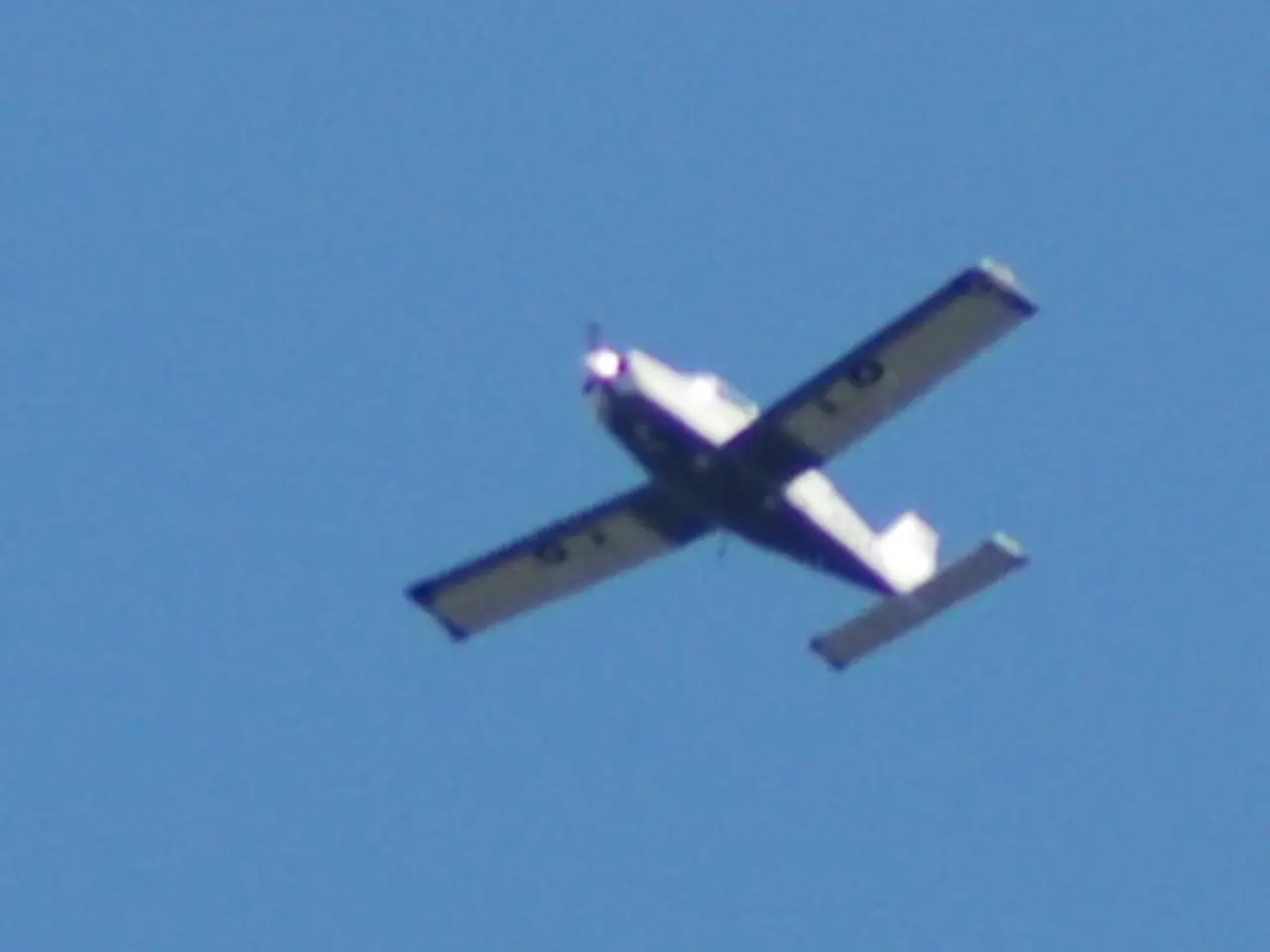Leading Private Jet Charter Firms Globally Ranked for 2025
In the dynamic world of private aviation, leading companies are making strides to reduce their carbon footprint and contribute to a greener future. Here's a snapshot of some key players and their initiatives in 2025.
NetJets, a Berkshire Hathaway company, continues to dominate the fractional jet ownership and private jet card market. They have a vast fleet, including a significant order of up to 1,500 Cessna Citation jets from Textron Aviation, with deliveries starting in 2025.
Flexjet, known for its Red Label by Flexjet program, offers a full range of private aviation services and has the youngest fleet in the fractional industry, along with dedicated flight crews. They are also exploring the addition of helicopter services in 2025.
Jettly, a marketplace for private jet charters, connects customers with a large network of planes for travel on demand. They offer options like fractional ownership and jet card memberships.
Jet Linx distinguishes itself with a unique local service model, offering private jet and aircraft management services with city-specific operations across the U.S.
VistaJet offers a unique programme that allows members to pay only for the hours they fly, with a fleet primarily composed of super-midsize and global range jets. They expanded their offerings in the UK market in 2025 by introducing the Cessna Citation XLS aircraft through a partnership with Saxon Air.
Wheels Up, a significant U.S. player in on-demand private aviation, is planning to modernise its fleet and improve the customer experience in 2025.
Airshare offers a holistic suite of private aviation solutions, including aircraft management, fractional ownership, EMBARK jet cards, and charter services, with a growing fleet of approximately 140 aircraft. They were named the Official Private Aviation Provider of the PGA of America and the 2025 Ryder Cup, showcasing their commitment to excellence and brand visibility.
XO, a subsidiary of Vista Global, offers a full range of flight services, including fixed-price charter flights and customized private jet membership programs. However, details about their environmental initiatives were not provided.
Nicholas Air, with its motto "It's not just private, it's personal," provides a reliable, high-touch service with a fleet of new planes that it owns and operates, from Phenom 100s to Gulfstream G600s.
Magellan Jets unveiled a fractional ownership program centered around the Bombardier Challenger 850 in 2025, in partnership with Slate Aviation.
The private jet charter industry is projected to reach $16.38 billion in 2025 and grow at a 7.95% compound annual growth rate (CAGR) through 2030.
Amidst this growth, environmental concerns are increasingly becoming a priority. Leading private jet charter companies are adopting sustainable aviation fuels (SAF), derived from waste products like used cooking oil and animal tallow, which significantly lower lifecycle carbon emissions compared to conventional jet fuel. Although SAF presently accounts for only a small portion of total fuel consumption, its adoption is expected to rise due to regulatory mandates in regions including the EU, UK, Canada, Brazil, Indonesia, and Singapore.
These companies also face new taxation policies on premium/private flying designed to fund sustainability initiatives globally. The aviation sector is collectively advancing environmental goals through innovation, sustainable fuel commitments, and participation in global sustainability summits, further encouraging private jet operators to align with these trends.
These approaches reflect the industry's recognition of private jets as a high-emissions sector requiring tailored solutions. However, sustainable aviation fuel costs remain a barrier, and current SAF penetration is still modest. The new taxation frameworks aim both to internalize environmental costs and to generate funding for climate action, creating financial incentives for cleaner private jet operations.
In summary, for 2025, leading private jet charter companies are adopting sustainable aviation fuels despite costs and limited availability, facing new taxation policies on premium/private flying designed to fund sustainability initiatives globally, and industry-wide collaborations and innovations continue to push the sector towards greener operations. These combined measures constitute the forefront of environmental action by private jet operators aiming to reduce their carbon footprint in 2025.
- Technology plays a crucial role in the private aviation sector, as companies like NetJets and VistaJet modernize their fleets and improve customer experiences in 2025.
- Amidst industry growth, lifestyle companies in the sector, such as Nicholas Air and Magellan Jets, prioritize personalized service and customer satisfaction.
- In the aerospace and finance industries, private jet charter companies, including XO, Airshare, and Jet Linx, are exploring sustainable practices like the adoption of sustainable aviation fuels (SAF) to reduce their carbon footprint and contribute to a greener future.





